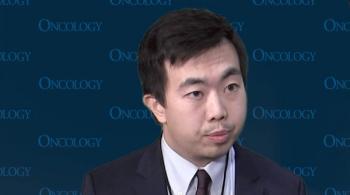
Artificial intelligence models may be “seamlessly incorporated” into clinical workflow in the management of prostate cancer, says Eric Li, MD.

Your AI-Trained Oncology Knowledge Connection!


Artificial intelligence models may be “seamlessly incorporated” into clinical workflow in the management of prostate cancer, says Eric Li, MD.
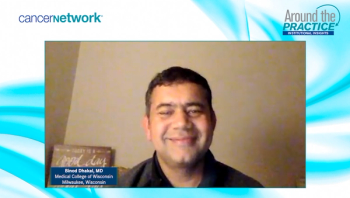
Dr Dhakal outlines the FDA-approved CAR T-cell therapy products for patients with multiple myeloma who have undergone at least four prior lines of treatment, emphasizing a focus on individualized decision-making when selecting patients for CAR-T.
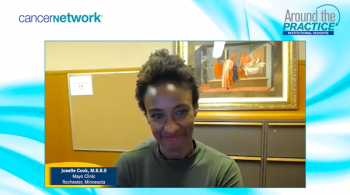
Joselle Cook, M.B.B.S., presents the case of a 62-year-old woman with high-risk multiple myeloma to the panel for discussion.
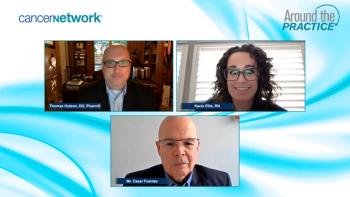
Dr Thomas Hutson outlines the diagnosis and staging of renal cell carcinoma, the surgical and non-surgical treatment options, and notes that while the majority of cases are potentially curable, 20-25% of patients present with or later develop metastatic disease.

Thomas Hutson, DO, PharmD, discusses renal cell carcinoma, including its epidemiology, risk factors, subtypes, and management approaches, in a dialogue with his clinical nurse, Kacie Ellis, RN, and his patient, Mr. Cesar Fuentes.
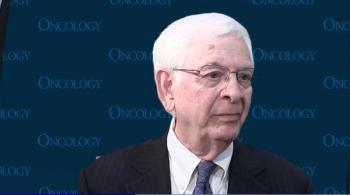
Robust genetic testing guidelines in the prostate cancer space must be supported by strong clinical research before they can be properly implemented, says William J. Catalona, MD.
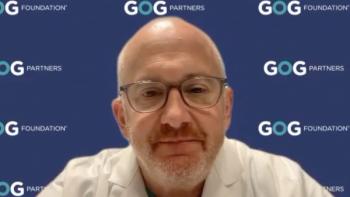
Treatment with tisotumab vedotin may be a standard of care in second- or third-line recurrent or metastatic cervical cancer, says Brian Slomovitz, MD, MS, FACOG.
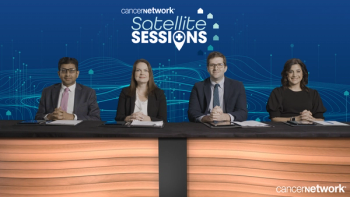
Comprehensive insights on quadruplet therapy regimens and the risk stratification process for patients with multiple myeloma.

A panel of experts on multiple myeloma discuss newly diagnosed patients and factors that determine transplant eligibility.
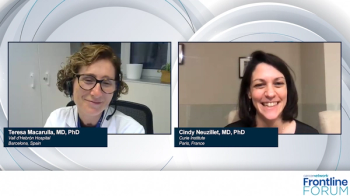
Teresa Macarulla, MD, PhD, and Cindy Neuzillet, MD, PhD, offer key takeaways and conclude their discussion by offering advice for clinicians treating patients with NRG1 fusion–positive malignancies.

Drs Macarulla and Neuzillet discuss the role of zenocutuzumab in the treatment of patients with NRG1 fusion–positive solid tumors.

Experts on pancreatic cancer review recent data on zenocutuzumab in patients with NRG1 fusion–positive GI malignancies.

Medical oncologists provide insights on the evolving molecular testing practices for NRG1 fusions.

Teresa Macarulla, MD, PhD, and Cindy Neuzillet, MD, PhD, define NRG1 fusions and outline their incidence and effect on prognosis.

The difference in adverse effect profiles between sorafenib and nirogacestat may make one treatment more appealing than the other for certain patients with desmoid tumors, says Brian Van Tine, MD, PhD.
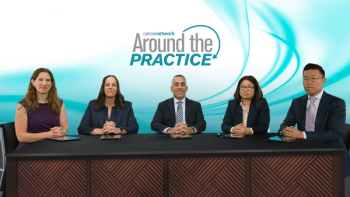
Kristen K. Ciombor, MD, discussed the ongoing MOUNTAINEER-03 trial, a global Phase 3 study randomizing patients with untreated HER2-positive colorectal cancer patients to FOLFOX plus tucatinib/trastuzumab versus standard chemotherapy plus a biologic, which she said highlights the importance of upfront molecular testing and could change treatment.
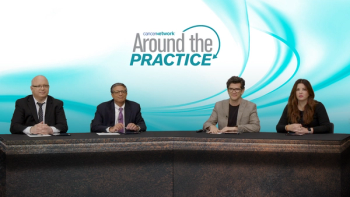
Expert panelists review the complex decision-making process between CAR-T and BCMA bispecific therapies in the management of relapsed myeloma, discussing patient-specific factors and relative risks and benefits.
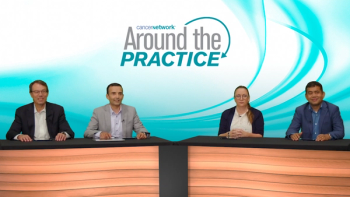
The expert panel closes the discussion with key takeaways on the relapsed/refractory multiple myeloma treatment landscape.
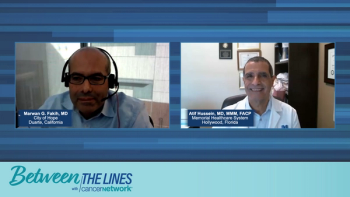
Marwan G. Fakih, MD, reviews the study design for the SUNLIGHT clinical trial investigating trifluridine-tipiracil plus bevacizumab in patients with refractory metastatic CRC.
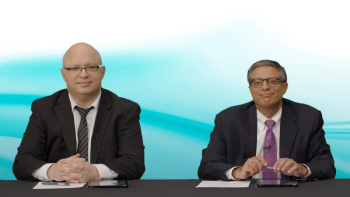
A complex case study in multiple myeloma management, exploring treatment sequencing options for a patient with a long history of disease and multiple lines of therapy.

A brief overview of treatment options available for patients with colorectal cancer prior to the SUNLIGHT study.

Multiple myeloma–treating oncologists provide comprehensive insights on deciding between bispecific antibody monotherapy, combination therapy, and CAR T-cell therapy.

Toxicities with tucatinib in patients with colorectal cancer like fatigue and GI issues are generally manageable but still require close monitoring, with early optimization of diarrhea management being key to allow patients to stay on effective treatment long-term.

Experts discuss the rapidly evolving treatment landscape for EGFR exon 20 insertion lung cancer, highlighting recent advancements in therapies, clinical trial results, and the quest for first-line treatment options, providing valuable insights into managing this unique patient population.
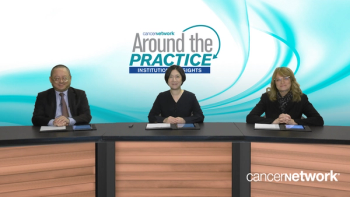
Sai-Hong Ou, MD, PhD, and Janellen Smith, MD, discuss the management of a patient with non-small cell lung cancer and an EGFR exon 20 insertion mutation who experienced a rash while on treatment with amivantamab; they highlight the importance of continuous treatment and potential considerations for this patient group.
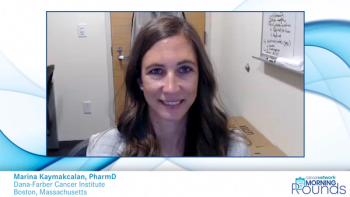
Perspectives on the adverse events and management of tivozanib, covering common and serious toxicities with an emphasis on a multidisciplinary approach to optimize patient care and treatment benefits.
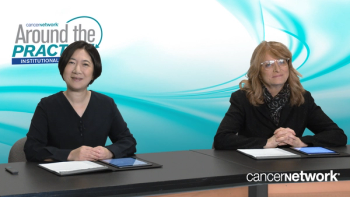
Sai-Hong Ou, MD, PhD, discusses the challenging management of patients EGFR-mutant non-small cell lung cancer who develop resistance to EGFR tyrosine kinase inhibitors, emphasizing the importance of understanding the resistance mechanism to tailor treatment.

Learn about the latest developments in the treatment of lung cancer, focusing on EGFR mutations, antibody-drug conjugates (ADCs), targeted therapies, and biomarker-driven approaches to improve patient outcomes in various stages of the disease.
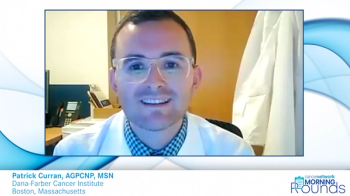
Experts from the Dana-Farber Cancer Institute delve into the TIVO-3 trial, discussing the design, outcomes, and nuances of tivozanib as a treatment option for refractory kidney cancer.
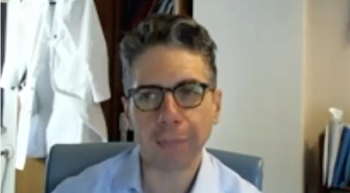
Richard Bakst, MD, speaks to the potential use of artificial intelligence in the radiation oncology space, and how he hopes to see it evolve.